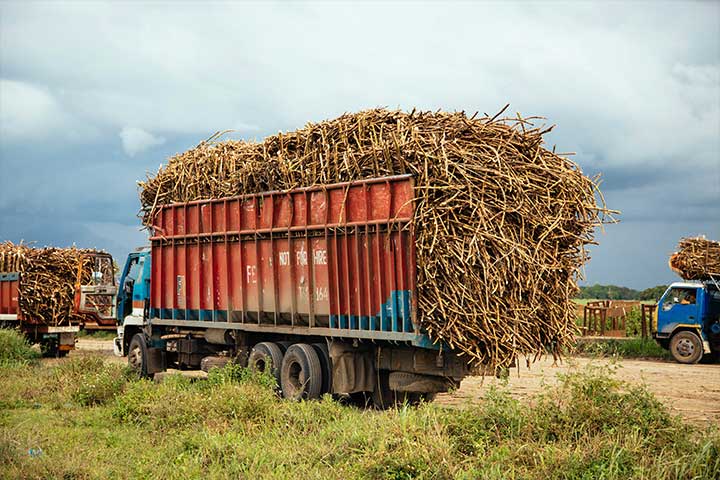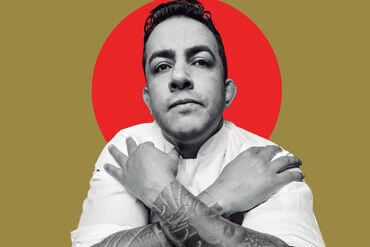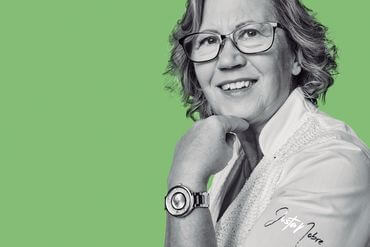
Don Papa
From the middle of the 18th century onwards, several regions in the Philippines concentrated on exporting sugar but production was highest on Negros Island, commonly known as Sugarland. Almost 50% of the country’s sugar came from this small island and between 1850 and 1980, sugar dominated this beautiful place of irregular mountains, white sandy beaches and lush jungle. Its rich volcanic soil produced one of the sweetest and most delicious sugar canes in the world. Today, the Philippines produces around 2.2 million tonnes of sugar per year. And where there’s sugar, there’s rum...
The first documented records of rum in the Philippines date from 1854 but it’s thought that rum was produced here earlier in small distilleries. Don Papa is produced entirely on the Philippine island of Negros. The production process starts by selecting one of the finest sugar canes in the world. Molasses from Negros has a higher sucrose content than other molasses, earning it the nickname ‘Black Gold’. Don Papa is made from this ‘black gold’, which is distilled and left to mature at the foot of Mount Kanlaon for seven years. The rum is filtered with carbon to eliminate any impurities and tannins before the final blend is made. The combination of soil, high quality sugar cane, ageing in oak barrels and the craftsmanship of master blenders gives Don Papa a soft, rich flavour.

Isla de Negros
So, who was Don Papa?
Don Papa rum, or ‘the Don’, was inspired by a hero of the Philippine Revolution: Dionisio Magbuelas, known as ‘Papa’ Isio. Papa Isio – healer, shaman, rebel and leader of a group of babaylanes – worked on a sugar plantation and played a leading role in the 19th century Philippine Revolution. His gift for leadership was vital to liberating Negros from Spanish rule, achieving independence for his country.
The iconic Don Papa label includes blends such as Don Papa 7 years, which has a drier and more elegant formula. Don Papa 7 is aged in former bourbon and Rioja American oak barrels that give it great depth of flavour. The resulting blend has a surprisingly intense flavour of fruit, vanilla cream and black coffee. It has persistent notes of toasted oak and a soft, long finish. If you’d like to enjoy the authentic and original spirit of Don Papa, Don Papa Baroko, which is aged for several years in American oak barrels before being blended, has citric and vanilla aromas, caramelized tropical fruit notes and a long, soft finish with raisin.
The range is rounded off with the brand’s Premium and Limited editions. Don Papa 10 years exemplifies the art of the master blender and is produced in a hand-crafted process by masters who are steeped in the Philippine tradition of rum making. The rum is aged for ten long years in toasted American oak barrels giving it wood and vanilla notes. Only the best barrels are used for its later blending, resulting in Don Papa 10 years. Dark amber in colour, it’s a rum with deep, rich and powerful aromas, a delicate tickle on the tongue, cocoa and dried fruit notes and a light touch of oak.

Don Papa rum
Don Papa Sherry cask is matured for 4 years in former bourbon American oak barrels and refined for 18 months in four different types of sherry barrel: Fino, Pedro Ximénez, Cream and Palo Cortado. The Don Papa master blender carefully blends rum from the four different barrels to produce a remarkable, limited edition rum that is unfiltered and bottled at 45% abv to emphasise its distinctive flavour. It has soft, fruity aromas with raisin notes, and a full-bodied taste with delicate plum, dark chocolate and ripe fig notes, giving it an extremely long finish and velvety texture.
The final special, limited edition of Don Papa is Don Papa’s Rye Aged Rum, a rum that’s aged for 4.5 years in rye whiskey barrels (Jim Beam, Jack Daniels and Whistle Pig) and bottled at 45% abv. It has vibrant, fruity aromas with spiced notes of ground black pepper, rich salted caramel and a touch of fresh mint and cedar wood. The flavour is deep, intense and velvety.






